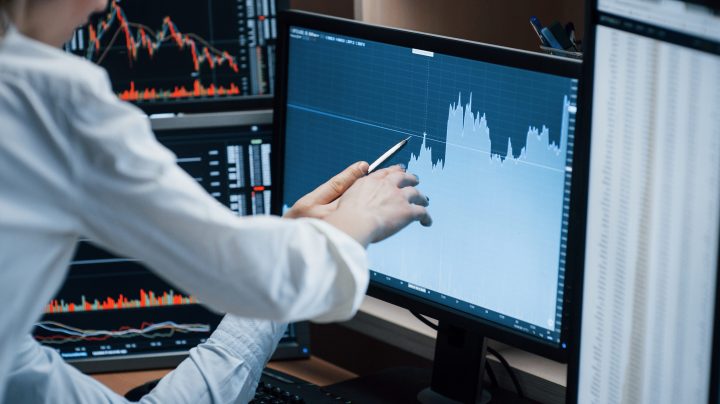
Does the torrent of government data make economists better at predictions?
Does the torrent of government data make economists better at predictions?

Today in the world of fresh economic data we got … nothing. Wednesday was one of the increasingly rare nonholidays when the federal government, big university or private data firm isn’t releasing a big new batch of economic data.
With all that data that’s out there most days, do we have a better sense of where this economy is going?
Maria Arias is a data engineer at FRED, the Federal Reserve Bank of St. Louis’ incredibly popular economic data site.
“So today we should see the euro short-term rate updates, harmonized indices of consumer prices, or HICP,” she said. The list goes on and on, even though Arias said today is light.
But it used to be much lighter. FRED started tracking 30 kinds of data in 1991; now it’s up to 800,000. Most of that is government data that wasn’t accessible to the public until new data apps and the internet came along.
It’s basically irresistible to economists.
“I checked FRED no more than 14 times this morning,” said Justin Wolfers, a labor economist at University of Michigan. Having payroll, unemployment and even restaurant reservation data at his fingertips is an economist’s dream, he said.
And all of this data must make them better at forecasting the future, right?
“The evidence seems to be if we are, only a little bit,” Wolfers said.
But how is that possible? How can economists in 2022 only be marginally better at predicting something like jobs numbers than Paul Volcker was using graph paper and an abacus in 1978?
Wolfer said either there’s something fundamentally unknowable about the economy “or that the constraint is not the quality of our data, but maybe instead the quality of our economic insights.”
Even if we’re not forecasting much better, at least we don’t have to wait as long to see what’s happening, said Yale finance professor Bill English.
“We want to know what’s going on now, and I think we have gotten better at that actually,” English said, but he’d still like more data.
It turns out asking an economist if there’s too much data in the world is like asking a 6-year old if there’s too much candy.
There’s a lot happening in the world. Through it all, Marketplace is here for you.
You rely on Marketplace to break down the world’s events and tell you how it affects you in a fact-based, approachable way. We rely on your financial support to keep making that possible.
Your donation today powers the independent journalism that you rely on. For just $5/month, you can help sustain Marketplace so we can keep reporting on the things that matter to you.

















